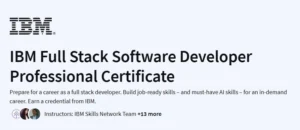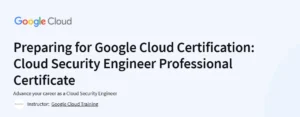Learn Functional Programming in Python
A concept-rich and hands-on course for mastering functional programming patterns in Python to write better, cleaner code.
What will you learn in Learn Functional Programming in Python Course
Understand the principles of functional programming and how they apply to Python.
Use first-class functions, pure functions, and higher-order functions effectively.
Work with key functional constructs like
map,filter,reduce, and list comprehensions.
Explore lambda expressions, closures, decorators, and recursion.
Improve code readability, testability, and reusability through immutability and functional paradigms.
Learn to integrate functional programming concepts into real-world Python projects.
Program Overview
Module 1: Introduction to Functional Programming
⏳ 1.5 hours
Topics: What is functional programming, imperative vs. functional style, core benefits.
Hands-on: Compare imperative and functional code examples in Python.
Module 2: Functions as First-Class Objects
⏳ 2 hours
Topics: Assigning functions to variables, passing functions as arguments, returning functions.
Hands-on: Build higher-order functions and reusable utilities.
Module 3: Pure Functions and Immutability
⏳ 2 hours
Topics: Side effects, referential transparency, using tuples and frozensets.
Hands-on: Refactor code to use pure functions and immutable data.
Module 4: Built-In Functional Tools
⏳ 2.5 hours
Topics:
map(),filter(),reduce(),zip(), andenumerate().Hands-on: Perform data transformations using these core functions.
Module 5: Lambda Expressions and Closures
⏳ 2 hours
Topics: Anonymous functions, capturing variables, variable scoping.
Hands-on: Build compact operations using lambdas and nested closures.
Module 6: Recursion and Tail Calls
⏳ 2 hours
Topics: Recursion patterns, avoiding stack overflow, converting to iteration.
Hands-on: Solve problems like factorial and Fibonacci using recursion.
Module 7: Decorators and Composition
⏳ 2.5 hours
Topics: Writing custom decorators, chaining functions, function pipelines.
Hands-on: Create decorators for logging, timing, and validation.
Module 8: Real-World Applications
⏳ 2 hours
Topics: Using functional programming in data processing and event-driven design.
Hands-on: Build a small project demonstrating functional techniques in practice.
Get certificate
Job Outlook
Functional programming concepts are highly valued in backend development, data science, and software architecture.
Python developers with a functional mindset write more efficient, modular, and testable code.
Skills translate well into roles using Scala, Haskell, or functional JavaScript.
In-demand in startups and companies that prioritize clean, scalable architectures.
- Strong conceptual focus with practical examples
- Great balance of theory and hands-on activities
- Covers decorators, closures, and higher-order functions deeply
- No integration with large-scale projects or async workflows
- Limited coverage on performance implications
Specification: Learn Functional Programming in Python
|





